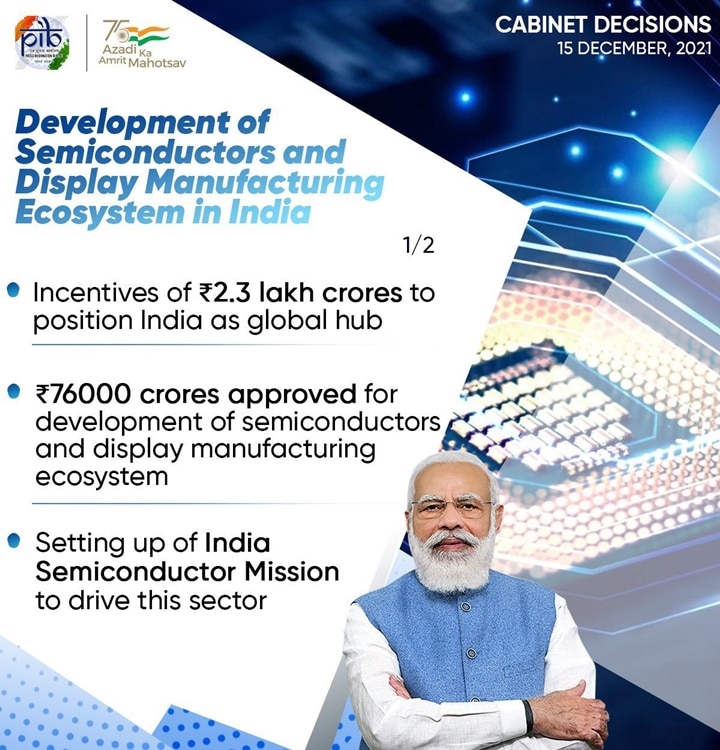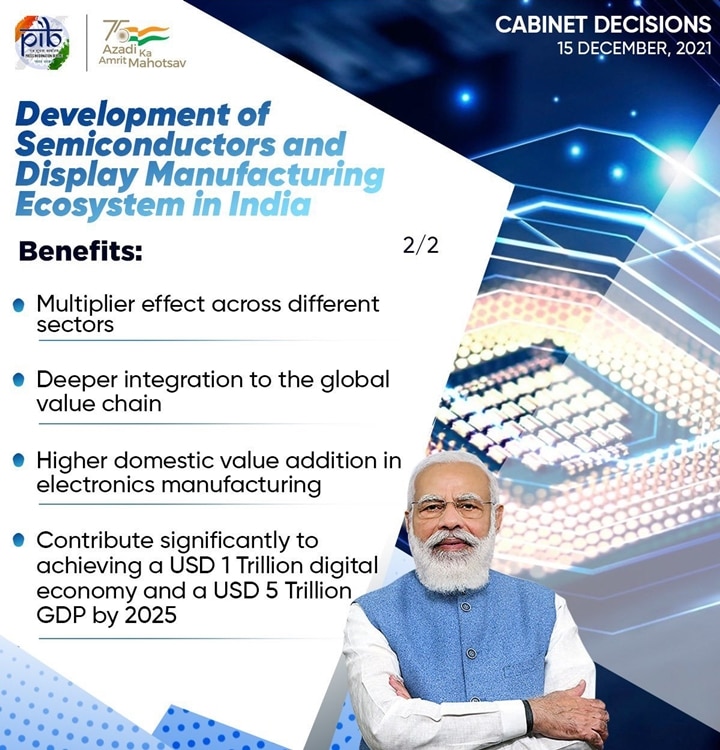Cabinet Approves PLI Scheme For Semiconductor Manufacturing Worth Rs 76,000 Crore
The policy comes at a time when the world is facing a crunch of semiconductors, a key component in all types of electronic devices.

New Delhi: At a time when the world is facing a severe shortage of microchips, a key component in mobile phones and electronic devices, the Cabinet on Wednesday approved a production-linked incentive (PLI) scheme to promote manufacturing of semiconductors and display boards.
"An ambitious project to establish a complete ecosystem of semiconductors and display manufacturing has been sanctioned. Rs 76,000 crores will be spent on this project in 6 years," Union Minister for I&B Anurag Thakur said at a press briefing.


Telecom and IT Minister Ashwini Vaishnaw said the decision would help design, fabrication, packing and testing of the microchips and develop a complete ecosystem, PTI reported.
Production-linked incentive scheme is aimed at providing incentives to companies for enhancing their domestic manufacturing. Recently, the government identified 13 priority sectors where PLI schemes will be launched.
Following the Cabinet approval, the government is hoping to attract interest from top multinational firms like Mediatek, Intel, Qualcomm and Texas Instruments.
The worldwide shortage of chips has affected major industries like smartphones, laptops, cars, appliances and more. The supply has been disrupted due to the Covid-19 pandemic, which forced production centres to close intermittently as countries went into a lockdown.
The impact was exacerbated by soaring demand for electronic products, with people working from home needing laptops, tablets and webcams to help them do their jobs. Several carmakers in the world have also delayed deliveries of their vehicles due to chip shortage.
In August, Mumbai-based conglomerate Tata Group said it was planning to get into semiconductor manufacturing.
The Cabinet has also approved another scheme to provide incentives to encourage digital transactions through RuPay Debit Card and BHIM UPI of small amounts. "It will incur an expense of around Rs 1,300 crore," Anurag Thakur said.





































